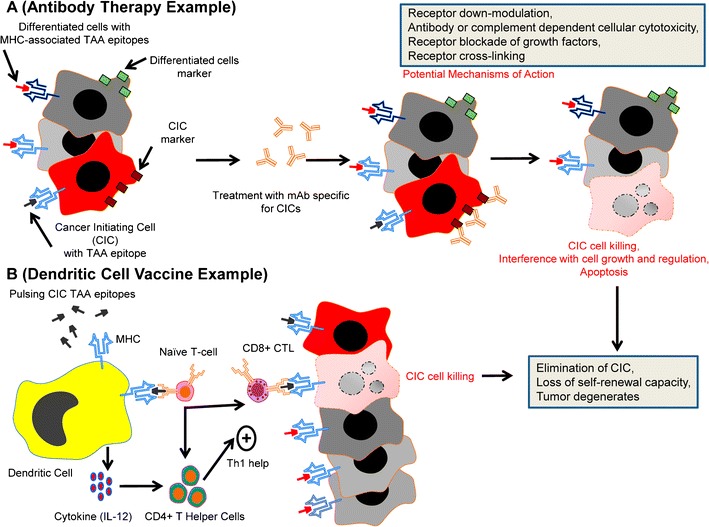Fig. 2.

Targeted therapy for CICs. a CICs are likely to express specific markers (cell surface antigens in the example shown) that can be used for targeted therapy. One approach will be treatment with monoclonal antibodies (mAb) specific for markers expressed on CICs but not on differentiated cells. Through a variety of mechanisms, mAb therapy can lead to interference in cell growth or regulation of CICs or can induce apoptosis or cell killing directly. b Further characterization of lung CICs will likely reveal expressed antigens that can be used to target them. One cancer vaccine approach to eliminate CICs is shown here using antigen-presenting dendritic cells (DCs) pulsed with tumor-associated antigen (TAA) epitopes specific for CICs. DCs process and present TAA on major histocompatibility complexes (MHC) to T cells to stimulate a CD8+ cytotoxic T-lymphocyte (CTL) response that is thought to be critical for tumor elimination. DCs also express all of the necessary cytokine and co-stimulatory molecules, such as IL-12, to further direct the immune response to tumor and induce CD4+ Th1 T-helper cells. Once CICs are eliminated from the tumor the capacity for self-renewal is lost and the tumor degenerates. Note that tumor debulking of differentiated cells will also need to be accomplished concurrently
